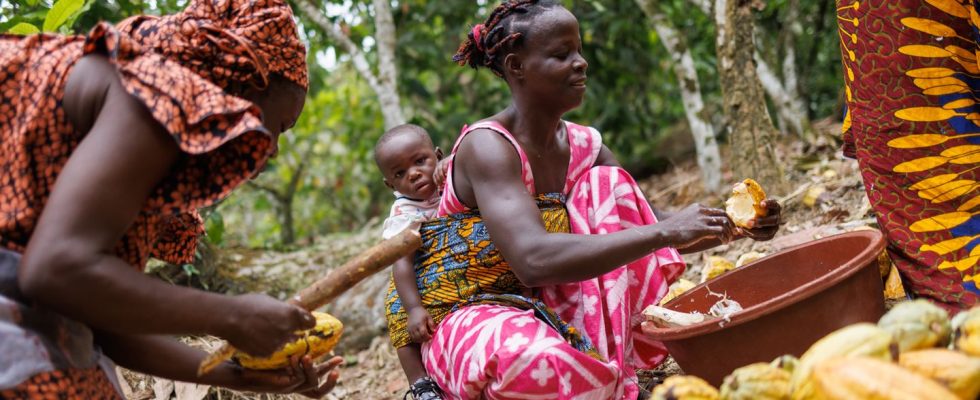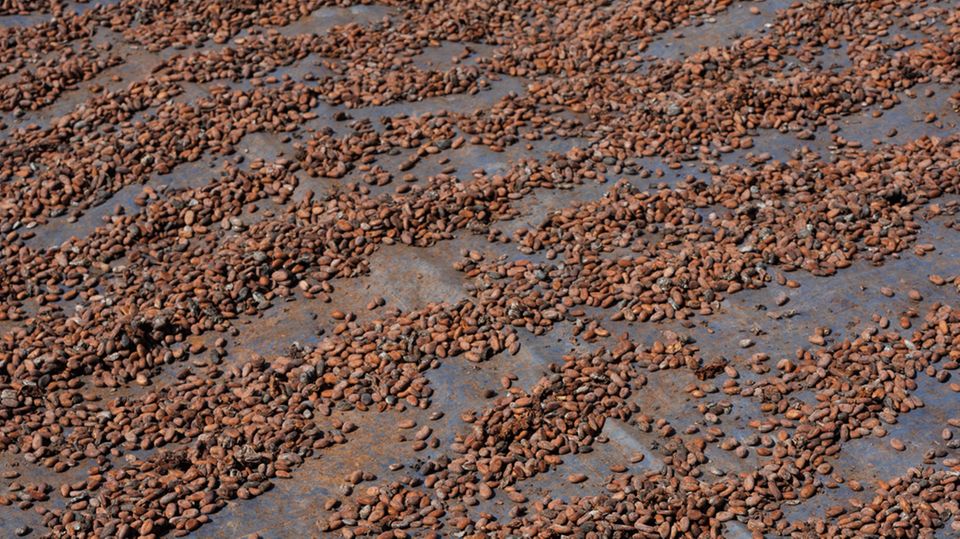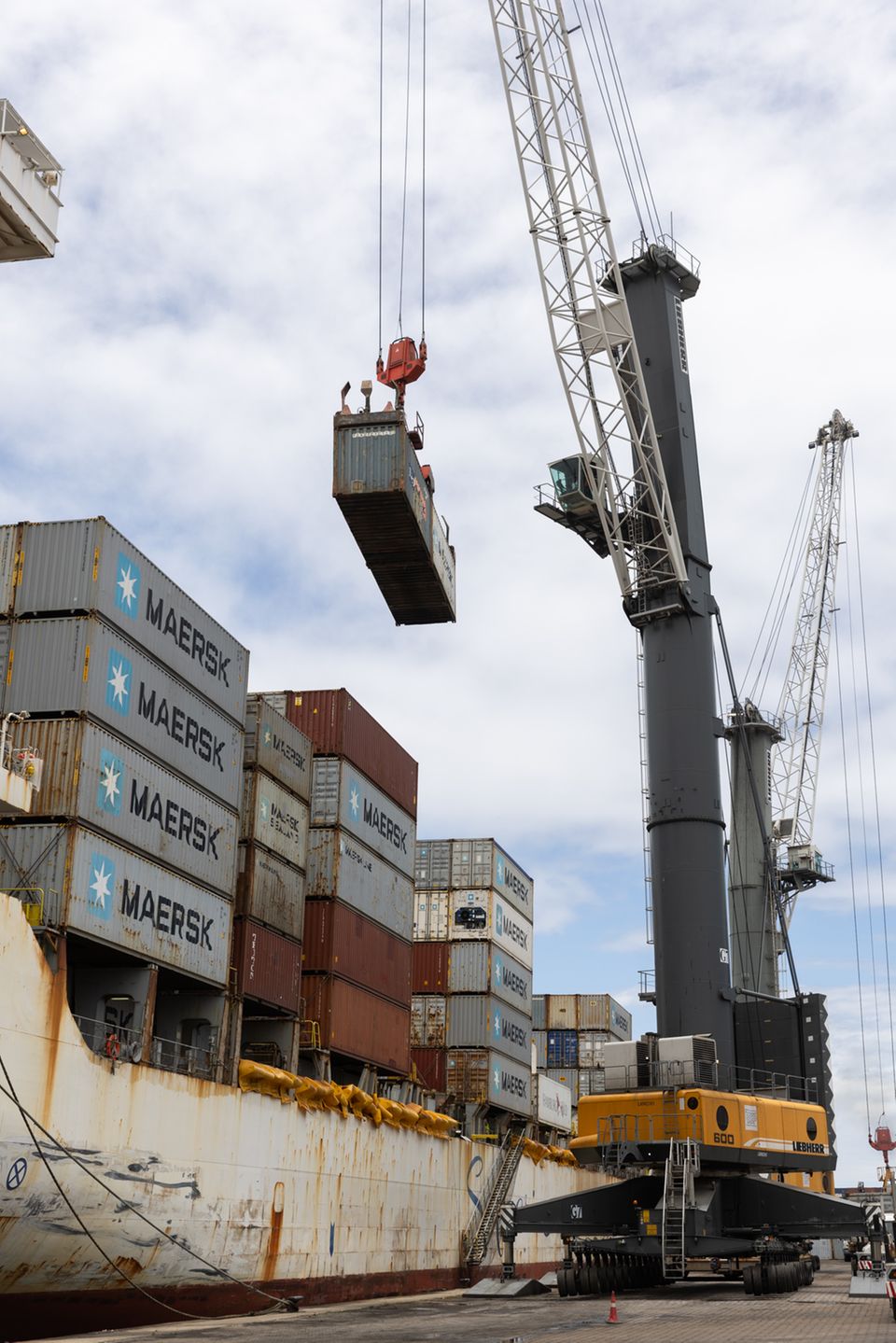The German Supply Chain Act has been in effect since the beginning of 2023. Does it actually have an impact on the production of raw materials in the global south, such as cocoa? Friedel Hütz-Adams from the Südwind Institute for Economics explains.
By Markus Wanzeck
Mr. Hütz-Adams, this occurred on January 1, 2023 Supply Chain Act in force is intended to regulate the responsibility of companies for compliance with human rights in global supply chains. Did it make a difference?
Corporations are now looking at their supply chains in much more detail than before. The law obliges them to identify and minimize risks of human rights violations such as child labor. In the case of cocoa, the risk analysis is simple: every country of origin of cocoa currently has a high risk. Cocoa is high risk.
Does this mean that the shell game of responsibility – the reference to too many intermediaries that make it impossible to prosecute violations – is now over?
That’s over with cocoa, as well as with many other products. The German supply chain law is accompanied by an EU regulation that came into force in the middle of the year: From the end of 2024, it prohibits the import of agricultural products such as cocoa, coffee or palm oil from areas that were deforested after 2020. Accordingly, only products may be imported if the exact location of the farm from which they come is known.
Sounds a bit unrealistic.
Let’s see. Amazing things have been happening in the cocoa sector for the last two or three years. As we hear, more than a million farms were located and surveyed in West Africa alone in the run-up to the deforestation regulation. In Ghana and Ivory Coast, the governments are in the process of creating accurate cadastral registers. In Ivory Coast, all cocoa farmers receive a chip card on which the key details of their farm are noted. The cocoa market is becoming much more transparent. This makes it more difficult for companies to hide behind ignorance when it comes to environmental and social injustices.
Friedel Hütz-Adams studies global supply chains, especially cocoa, at the Südwind Institute for Economics and Ecumenism
© Private
The Sustainable Cocoa Forum has existed in Germany since 2012: the confectionery industry, the food trade, the government and NGOs wanted to work together to solve the industry’s human rights and environmental problems. Did that do anything?
At first it was promising. High-ranking people from the companies attended the meetings. This provided an important platform on which people could talk to each other. I was a founding member of the forum and served on the board for several years, but I did not run again in 2017. Because not much of substance has happened for the farmers. The Forum has never required its members to take effective action. On the contrary. Some have tried to deny membership to the forum with the reference “Our cocoa is certified!” to use it to say: “We’re already doing everything. We’re on the right track.”
Wouldn’t it be the right way to have cocoa Fairtrade certified, for example?
It has long been an open secret in the cocoa industry: certification does not guarantee compliance with human rights – the largest certifiers, Rainforest Alliance and Fairtrade, also admit this. The Fairtrade minimum price also does not guarantee cocoa farms a living income.
This might surprise many customers.
Some retailers were also surprised when I told them about it. Labels like Fairtrade have set out to change markets for the better. However, they soon faced a problem: if they wanted to get out of the niche, they couldn’t be much more expensive than the conventional market. But as a result, their effect diminishes so much that they are now often little more than a tranquilizer for the public. If the Fairtrade premium for cocoa is ten percent of the average sales price: What good does that do if a cocoa farmer only earns half of what is considered a living wage in his country? Especially since certification involves costs that the farmers themselves have to bear.
After harvesting, the cocoa beans are dried in the sun for up to two weeks
© Jonas Wresch / star
But if children work on a cocoa farm in Africa whose harvest ends up in German chocolate: How is such a violation punished?
Anyone in Germany can file a complaint. The companies have set up complaint offices for this purpose. I hear from the companies that more and more are arriving there. You can also contact the new Federal Office of Economics and Export Control (BAFA). Bafa must then check whether a company has realistically assessed the risks and taken appropriate measures.
But isn’t it the case that most violations occur far from Germany in the growing countries?
Foreign bodies can also submit complaints. Of course, it is difficult for farmers in Ivory Coast to immerse themselves in the German legal system. But at least: it is possible. In the past, such lawsuits could be rejected on the grounds that German courts had no jurisdiction – as was the case with the fashion retailer Kik after the factory fire in Pakistan a few years ago.
The Bafa branch, which is responsible for monitoring global supply chains, is located in the former district court of the Saxon town of Borna. Doesn’t sound scary from a corporate perspective, does it?
You shouldn’t be fooled by this. But of course, when it comes to the question of how effective the supply chain law is, a lot will depend on Bafa. This can only be truly assessed next year when the companies submit their first annual reports. The acid test will be whether Bafa will let them get away with it if they hide behind any audits and labels. If it used to say “made from sustainably certified cocoa” somewhere, it had no meaning. I assume that this greenwashing will be over.
What makes you so confident?
The United Nations associates “sustainability” with the fact that a product is ecologically compatible and people can make a living from their work. And the Supply Chain Act refers to this definition. That’s why, in my opinion, Bafa should definitely not forget to ask the key question: Does the company pay a cocoa price that makes it possible to avoid child labor? Many small farmers could not currently survive without the help of their children.
Child labor has been declining worldwide in recent decades, not just in the cocoa industry. It has been rising again for several years. Why is that?
Due to the rapidly rising cost of living and until recently stagnating cocoa prices. The situation is similar with other agricultural products. In Germany we have already groaned under the inflation that followed the corona crisis and the Ukraine war. But in West Africa it was even more extreme. In Ghana it was 50 percent last year. Fertilizer prices have at times more than tripled. Many farming families could neither afford fertilizer nor adult workers. Because this year there was also extreme weather damage caused by El Niño, there are signs of a very poor cocoa harvest. But it also has its good side.
I’m sorry, what?
Given the shortage, the export price of cocoa has gone through the roof. In recent years it has always been around $2,000 to $2,200 per ton. Due to the bad harvest, it rose to $4,000. With such a price level, a living income would be possible for small farmers – if at the same time crop yields returned to their old level.
Cocoa beans are usually shipped to Europe in sacks in containers, like here from San Pedro in Ivory Coast. The port is the largest transshipment point for cocoa in the world
© Jonas Wresch / star
But the price is only a snapshot.
That’s why I call it a window of opportunity. Why don’t the chocolate companies say: “We’re working with this high cocoa price right now – and chocolate continues to sell well, we’re still highly profitable. If the price goes down again, we’ll compensate for that by giving the farmers correspondingly higher premiums pay.”
Sounds like a pious New Year’s wish.
That would have been a very pious wish before the Supply Chain Act. But now as a company I have to ask myself: If the world market price falls significantly again and families’ incomes fall significantly, I will receive more reports about child labor, malnutrition and exploitation. Can I take the risk? Given the small proportion that the price of cocoa makes up in the chocolate bar?
How high is it?
For a bar of whole milk chocolate with 30 percent cocoa content, I recently had a cocoa cost of 10 cents. If a bar of chocolate from Milka or Ritter Sport is sold for around 1.20 euros, that amounts to a cocoa share of a good eight percent of the sales price. What the farmers received was four to five percent of the sales price.
That is not much.
True. But that’s precisely why it would hardly matter if their earnings were doubled and raised to a level that would ensure a living wage. A bar of chocolate would only cost four to five percent more.
This would be the chocolate companies’ turn. What can you do as a customer? Don’t buy chocolate?
Stopping buying chocolate would cause the price of cocoa to fall. This would not help the farmers.
Buy a lot of chocolate to drive up the price?
It cannot be the responsibility of consumers to ensure compliance with human rights. That is the job of governments. And from companies. So I would buy my favorite brand of chocolate as usual, but write to the manufacturer: Can you guarantee that the farmers have a living income? If not this year, is this guarantee available for next year?



